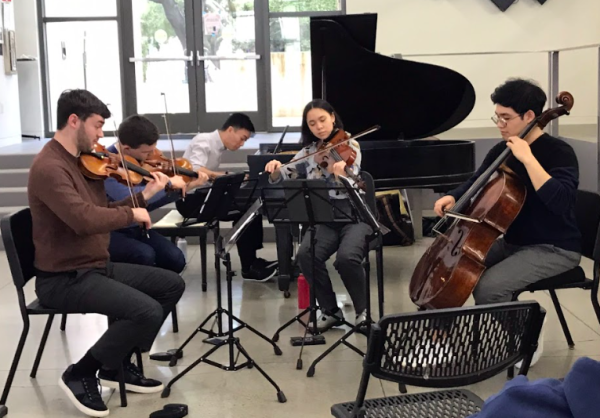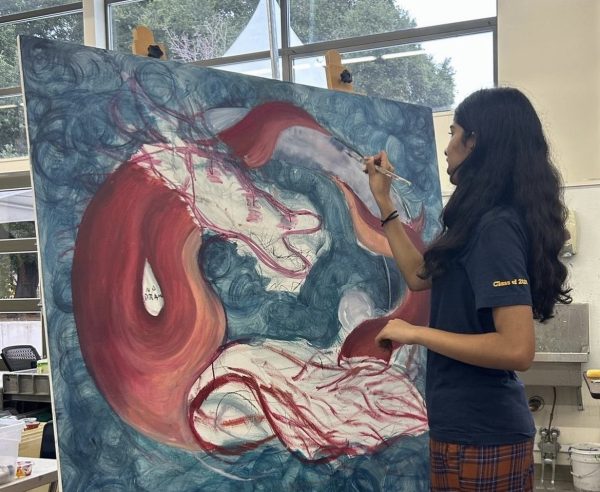Students React to New Grading Policies at Menlo and Other Bay Area High Schools
May 8, 2020
Menlo’s seemingly bold decision to temporarily close school on March 3 this year, in response to COVID-19, has now shifted to a critical measure that schools are taking all over the country. Just a little after one month, Head of School Than Healy announced in a video message that school closure would be extended through the remainder of the academic year. As of April 27, 43 US states have similarly extended or recommended state-wide school closures to the end of the year, according to a CNN article.
Extended school closure is unfamiliar territory for most school’s faculty and student body. So accordingly, school grading policies are shifting in response to these unique circumstances.
According to The Mercury News, many public schools in San Mateo County and Santa Clara County have implemented a pass/fail grading system amid the prolonged school closure, including Palo Alto High School and Menlo-Atherton High School. In addition to a pass/fail grading policy at both of these schools, they are holding optional meeting times and no mandatory classes.
Despite the drastic shift from everyday face-to-face classes to mere teacher instruction through online platforms, the transition has been smooth for Menlo-Atherton sophomore Ella Nelson. She is provided with weekly online guidance from each of her teachers and is expected to complete the given assignments. As an outcome of this new weekly schedule, her school days are generally less taxing. “My day is a lot more relaxed due to its lack of structure,” Nelson said. “But everything takes much longer now because there are more distractions.”
Although the schedule change has been beneficial in that Nelson’s stress levels are lower, the pass/fail grading system has negatively impacted Nelson’s drive to complete tasks. “[Pass/fail grades] sort of take away some motivation to try my best on assignments because I know that my grades don’t really matter as long as they are 60% [and above],” Nelson said. Nonetheless, from a broader standpoint, “Everyone’s pretty relieved that there’s a lot of pressure gone because there are so many stresses right now and grades add to that, so people are pretty OK with passing grades,” she said.
Unlike Menlo-Atherton, Menlo’s grading system is unique in the sense that students only receive year-long grades rather than semester or quarterly reports. Menlo’s decision on how grading will be affected is hence significantly more impactful for students compared to those at Menlo-Atherton. But what do Menlo students think is the best answer?
“I believe that [pass/fail] grades work well for public schools because of their grading system. But, with Menlo’s year-long grades, our later tests and quizzes have a bigger impact,” Menlo sophomore Saaz Ahuja said.
For most students, especially juniors, the fourth quarter serves as an essential time to bring grades up. Therefore, with the implementation of a pass/fail policy for the remainder of the year, that opportunity wouldn’t be accessible.
“Going into the fourth quarter, I really wanted to improve my grades because obviously colleges are going to be looking at them,” Menlo junior Izzy Hinshaw said. “So I’m a little anxious about not having the same opportunities that we would usually have in class to show growth.”
Although with the new grading policy a student’s grades can’t dip below their third-quarter progress report, shifting to online school has presented challenges in how students can raise their grades. Subsequently, teachers have turned to more technologically-friendly assignments such as projects and video tasks. For example, freshman physics teacher Deb Jensen has utilized online simulations for labs and has provided attached videos.
“The labs we have done in physics have worked out pretty well. […] They are a lot more interesting than just problem sets,” Menlo freshman Sydney Burnett said.
In addition to projects, some teachers have continued to administer tests; however, many have turned to open-note assessments. “I think open-note can be good in some cases because it can reduce the risk of cheating,” Hinshaw said. “But it isn’t really showing your learning; it’s showing how well you can take notes, so I think it depends on the type of assessment and the class.”
Grading policies implemented by schools as a result of the coronavirus is currently a hot topic and has produced varying responses among families. “In a place like Silicon Valley, we’re just super focused on grades. So because [grades are] so amped up, this is a very controversial topic,” Ahuja said.












